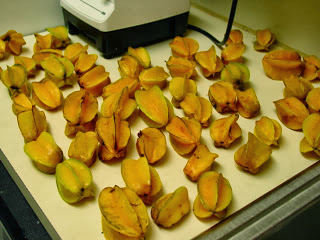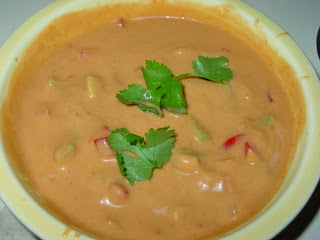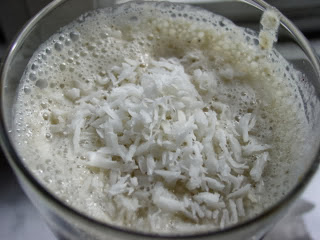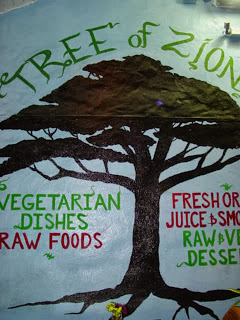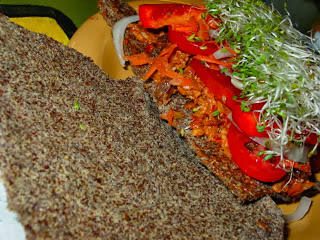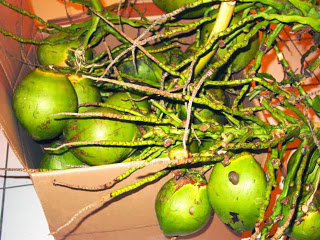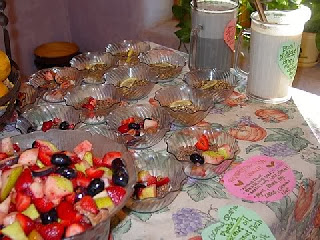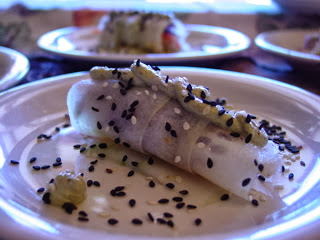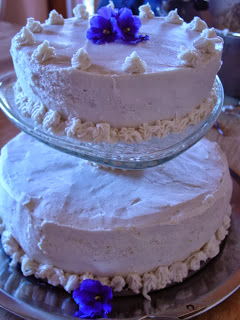Love and SelfishnessBy Gary Hull (Australia’s Herald Sun, February 2, 2004; Louisville Courier-Journal, February 13, 2005)Every Valentine’s Day a certain philosophic crime is perpetrated. Actually, it is committed year-round, but its destructiveness is magnified on this holiday. The crime is the propagation of a widely accepted falsehood: the idea that love is selfless.Love, we are repeatedly taught, consists of self-sacrifice. Love based on self-interest, we are admonished, is cheap and sordid. True love, we are told, is altruistic. But is it?Imagine a Valentine’s Day card which takes this premise seriously. Imagine receiving a card with the following message: “I get no pleasure from your existence. I obtain no personal enjoyment from the way you look, dress, move, act or think. Our relationship profits me not. You satisfy no sexual, emotional or intellectual needs of mine. You’re a charity case, and I’m with you only out of pity. Love, XXX.”Needless to say, you would be indignant to learn that you are being “loved,” not for anything positive you offer your lover, but—like any recipient of alms—for what you lack. Yet that is the perverse view of love entailed in the belief that it is self-sacrificial.Genuine love is the exact opposite. It is the most selfish experience possible, in the true sense of the term: it benefits your life in a way that involves no sacrifice of others to yourself or of yourself to others.To love a person is selfish because it means that you value that particular person, that he or she makes your life better, that he or she is an intense source of joy—to you. A “disinterested” love is a contradiction in terms. One cannot be neutral to that which one values. The time, effort and money you spend on behalf of someone you love are not sacrifices, but actions taken because his or her happiness is crucially important to your own. Such actions would constitute sacrifices only if they were done for a stranger—or for an enemy. Those who argue that love demands self-denial must hold the bizarre belief that it makes no personal difference whether your loved one is healthy or sick, feels pleasure or pain, is alive or dead.It is regularly asserted that love should be unconditional, and that we should “love everyone as a brother.” We see this view advocated by the “non-judgmental” grade-school teacher who tells his class that whoever brings a Valentine’s Day card for one student must bring cards for everyone. We see it in the appalling dictum of “Hate the sin, but love the sinner”—which would have us condemn death camps but send Hitler a box of Godiva chocolates. Most people would agree that having sex with a person one despises is debased. Yet somehow, when the same underlying idea is applied to love, people consider it noble.Love is far too precious to be offered indiscriminately. It is above all in the area of love that egalitarianism ought to be repudiated. Love represents an exalted exchange—a spiritual exchange—between two people, for the purpose of mutual benefit.You love someone because he or she is a value—a selfish value to you, as determined by your standards—just as you are a value to him or her.It is the view that you ought to be given love unconditionally—the view that you do not deserve it any more than some random bum, the view that it is not a response to anything particular in you, the view that it is causeless—which exemplifies the most ignoble conception of this sublime experience.The nature of love places certain demands on those who wish to enjoy it. You must regard yourself as worthy of being loved. Those who expect to be loved, not because they offer some positive value, but because they don’t—i.e., those who demand love as altruistic duty—are parasites. Someone who says “Love me just because I need it” seeks an unearned spiritual value—in the same way that a thief seeks unearned wealth. To quote a famous line from The Fountainhead: “To say ‘I love you,’ one must know first how to say the ‘I.'” //If one wants to measure the intensity of a particular instance of love, one does so by reference to the hierarchy of values of the person experiencing it. A man may love a woman, yet may rate the neurotic satisfactions of sexual promiscuity higher than her value to him. Another man may love a woman, but may give her up, rating his fear of the disapproval of others (of his family, his friends or any random strangers) higher than her value. Still another man may risk his life to save the woman he loves, because all his other values would lose meaning without her. The emotions in these examples are not emotions of the same intensity or dimension. Do not let a James Taggart type of mystic tell you that love is immeasurable.
_ AynRand_MY BODY IS A WORK OF ART. BEAUTY IS A VALUE TO ME. SO IS GENIUS.
I USE my mind, AND I LOOK AT MY HANDS, TEETH, AND DIGESTIVE SYSTEM AND REALIZE I AM A FRUIGOVORE. MONKEYS ARE ALSO FRUIGIVORES.
So here is my experiement. I will eat a fruit and plant based diet, RAW.
Like raw vegans do. Like Monkeys do, they eat fruit and greens in the wild. So I am like a monkey girl, kind of. As a test.
OMNIVORES HAVE SHARP TEETH, LIKE BEARS OR DOGS. THE SIGHT OF AN ANIMAL DOES NOT MAKE ME SALIVATE, BUT INSTEAD, WANT TO hug it. PEOPLE MAY HAVE SURVIVED FOR CENTURIES IN THE SNOWY CAVES COOKING THEIR MEAT, BUT WE ARE NOT IN THE SNOWY CAVES ANYMORE. I LIVE IN TROPICAL PARADISE, MIAMI. There is no famine.
I love the way I feel. I feel good. I have alot of energy to do what it is I want.
I THINK BETTER ON FRUIT SUGAR. I FEEL RECHARGED, AND MY BRAIN FEELS GOOD. MY THOUGHTS ARE CRYSTAL CLEAR AND THE WORK I DO IS AMAZING. I HAVE ENERGY AND I FEEL HAPPINESS.
Long term integrity with diet= amazing things happen to me in areas of work and personal life. Beauty and happiness. Cleanliness feeling of health and purity. Thoughts clear and joyous. Goals and ideals very possible to me. Favorable evidence for me. “Fast” materialization of thoughts, coincidences, such as I see more of what I am thinking of everywhere and more possibilities open up. Things I dream of doing and achieving happen to me easily. Easier than before. I notice.
I think pasteurized juices are no longer food. I cannot drink them for the taste is so bad. I think we should all have choices, fresh or bottled, whereever we go. I think there should be a market for raw juices.No cooked animal flesh.
I AM THE ONLY SOURCE OF TRUTH AND MY SENSES THE ONLY SOURCE OF KNOWLEDGE.
I eat fruit. Anything with seeds. Mostly Sweet Fruit. This fruit thing also includes avocados, tomatos, squashes and non sweet fruit.
If I want greens or nuts I will eat them.
I include other things like coconut or sugarcane juice.
My favorite is the Durian fruit.
I eat fruit, travel, write, love and write about it all .
Paris 2007
Money Can Buy HappinessThe old saying “money can’t buy happiness” has been proved wrong by researchers at The University of Nottingham. A study into lottery jackpot winners – those who have won more than 1 million – found that a resounding 97 per cent of interviewees were just as happy, if not happier, following their big win.
And it seems that money can even buy you love. Although 15 per cent of winners classed themselves as single in their previous lives, this dropped to 12 per cent post-win. Marriage is also on the cards for many winners – 68 per cent of respondents were married pre-win, jumping to 74 per cent afterwards.
Winners and non-winners completed a questionnaire designed as the ultimate happiness test, and their answers were compared. A Satisfaction with Life scale was used to determine subjective well-being; with respondents asked to rate how much they agreed or disagreed with statements such as “In most ways my life is close to ideal.” Marital status, health, type of house and typical holiday destination were also noted, measuring how lifestyles following a big win.
The study found that though the money brought with it financial stability and security, it was not necessarily material possessions that enhanced winners’ lives. 44 per cent of winners said that being able to spend more time with their family contributed to their happiness, compared to 26 per cent who said it was the ability to buy or do what they liked.
When presented with the statement “I am satisfied with my life,” 59 per cent of the winners agreed, compared to 40 per cent. Reassuringly for the non-winners though, the same number responded positively to the statement “In most ways my life is close to ideal” as the winners – 48 per cent said they agreed in both groups.
Just three per cent of the winners polled said they were less happy than before they hit the jackpot, citing new pressures in their lives. None missed working, found that the money caused arguments in their households or that it led to separation from their partners.
But the huge life changes that are expected to materialise following a big win are more myth than reality. Though many winners seem to move into bigger properties – 68 per cent of winners lived in detached houses compared to just 32 per cent pre-win – they stay in the same geographical area.
And though winners do take more holidays – three a year compared to non-winners 1.5 – they’re not noticeably more adventurous in their destination choice than non-winners. Holidays in the UK and Europe remained popular – 100 per cent of winners had taken a holiday in Britain since their win.
Dr Richard Tunney, Psychology Lecturer at The University of Nottingham, said: “The old saying ‘money can’t buy you happiness’ may not be true, but traditional family values, a comfortable home and financial security are clearly key elements to a happy life. Winners may shell out on a new home and more holidays, but the majority aren’t snapping up penthouses in the capital and cruising in the Bahamas. Instead they’re sticking to their roots, investing in property close to their original home and even keeping their holidays low-key. One pair who had hit the jackpot still took regular trips to their caravan in Ironbridge.”
The research was commissioned by National Lottery operator Camelot. It is the first academic study into jackpot winners since the National Lottery began 12 years ago.
NOTTINGHAM UNIVERSITYUniversity ParkNottinghamNG7 2RDhttp://www.nottingham.ac.uk Philadelphia, PA — Financially richer people tend
to be happier than poorer people, according to
sociological researcher Glenn Firebaugh,
Pennsylvania State University, and graduate
student Laura Tach, Harvard University.
Their research is focused on whether the
income effect on happiness results largely
from the things money can buy (absolute
income effect) or from comparing one’s income
to the income of others (relative income effect).
They present their research in a session paper,
titled “Relative Income and Happiness: Are
Americans on a Hedonic Treadmill?,” at the
American Sociological Association Centennial
Annual Meeting on August 14.to be happier than poorer people, according to sociological researcher Glenn Firebaugh, Pennsylvania State University, and graduate student Laura Tach, Harvard University. Their research is focused on whether the income effect on happiness results largely from the things money can buy (absolute income effect) or from comparing one’s income to the income of others (relative income effect). They present their research in a session paper, titled “Relative Income and Happiness: Are Americans on a Hedonic Treadmill?,” at the American Sociological Association Centennial Annual Meeting on August 14.Firebaugh argues that, in evaluating their own incomes, individuals compare themselves to their peers of the same age. Therefore a person’s reported level of happiness depends on how his or her income compares to others in the same age group. Using comparison groups on the basis of age, the researchers find evidence of both relative and absolute effects, but relative income is more important than absolute income in determining the happiness of individuals in the United States. This may result in a self-indulgent treadmill, because incomes in the United States rise over most of the adult lifespan.“If income effects are entirely relative, then continued income growth in rich countries today is irrelevant to how happy people are on the whole,” says Firebaugh. “Rather than promoting overall happiness, continued income growth could promote an ongoing consumption race where individuals consume more and more just to maintain a constant level of happiness.”Firebaugh tested what he refers to as the hedonic treadmill hypothesis, which uses a comparison of age-based cohorts. The hedonic treadmill requires a specific type of relative income effect—one where “keeping up with the Joneses” means continually increasing one’s own income, because we can be sure that the Joneses are increasing theirs.The researchers’ measured the age, total family income, and general happiness of 20- to 64-year-olds using analysis from the 1972-2002 General Social Survey. They controlled for health, education, effects of getting older, race, and marital status. Happiness was measured using a self-report response of “very happy,” “pretty happy,” or “not too happy.”While income is important in determining happiness, Firebaugh’s data found that physical health was the best single predictor of happiness, followed by income, education, and marital status. The researchers found a relative income effect—the richer you are relative to your age peers, the happier you will tend to be.
“We find with and without controls for age, physical health, education, and other correlates of happiness,” said Firebaugh, “that the higher the income of others in one’s age group, the lower one’s happiness. Families whose income earners are in jobs with flat income trajectories are likely to become less happy over time. Thus the relative income effect observed here implies adverse effects for some individuals over the working years of their life cycles.” What is it that we all want as people? Beauty love money fame successI want that everybody loves me, everybody in the entire world. I want to belong to people. I want to be a star.Who is my ideal man?Black hair, strong, confident,successful and genius. Popular, talented, workaholic and true to himself. Tells the truth no matter how hurtful it is. Knows himself, sees himself in the highest imaginings he has. The greatest he can be. The most beautiful and richest in reality is pure gold. That is the proof of a perfect mind.. What makes him different than everybody else, is that he focuses on just that. He imagines big. He can be too good for everybody, but when I see him he gives 100% of his true self to me to see how it is possible to achieve it all. That is all that matters to me, if he can tell me the truth. I am so curious about his life. There is not one detail I miss about anything I see or feel. I want to know everything. The more the better, the worst the closest I am cemented.. That is the only friendship one could have, knowing what cant be told to anyone.
I sometimes want to be the devil, if the devil means to please ourselves. Why be an angel if I can’t? Can anyone? Why not be honest about it ? We all do. All of us. Why keep it secret? Why fear making a mistake when it is ok? I can only have everything and have it all be good for me. I can’t have nothing less or I begin to fail as person. I am hard on myself, I push for the highest. In everything..when I say have it all, I mean the bad too. I want it.
back to my ideal man. My ideal relationship to him would be something where I would express myself and my body as fully as possible. The devil and the angel. I want to be with that person more than anything as a reward for my life.
I want to talk about everything honestly and openly. I want to speak. I want to be everything good and bad to that man. I want to seek his help in many things and I want to give him what he needs. I also want it to be worth it. I can’t throw away my life to exclude everyone else, for nothing, I want value. SOmetimes you can tell the worth of a man by what he gives or does for you.. You can see how successful he is or how you imagined wrong.. how else am I to scale and value my worth, and put myself in perspective from other women? I am competitive. I want more than everyone else has. Whereever I am.
I have to earn this though. I have to be someone worth it. Meaning I have to be it in mind as well as in body. And it all has to be worth it to me. I want it all, I have to know what it is I want. Is it fantasy, or something material>? I want everything. No, I want more that was ever given away before. I have to have that extreme. To aim for that. Why else live for?
I have to be flawless for this. I have to be forgiving of everything. Never a reproach spoken. I say this because any reproach I might give, the man already knows about. So saying anything is wasting my breath.
Fully accepting, fully accepting of the entire world. A star in the world, perfect, flawless. I have to think perfection always.
Instead of inferiority complex I will replace myself with a superiority complex. Try that on. But I can’t expect to deserve it if I aint it. I have to be it, and all my time and energy maintaining it. What it is I have to think about.THE IDEA IS TO FOLLOW “I”. “I” IS THE KEY TO EVERYTHING, I IS THE POT OF GOLD, IT IS THE FOUNTAIN OF YOUTH, IT IS THE MAGIC BULLETEVERYBODY SEEKS, IT IS THE HIGHEST, BEST THING EVER.NOT ME, BUT I. I IS HIGHER THAN ME. IT IS THIS ENERGY THAT COURSES THROUGH ME, EVERYTHING FILTERS THROUGH I. i CAN PUT BAD STUFFTHROUGH IT OR LET IT GO NATURALLY ON ITS OWN COURSE. I KNOWS EVERYTHING. I HELPS, SEEKS AND WANTS ONLY THE BEST FOR ME. THELAST WORD IS I.MY HEART BELONGS TO I. MY HEART ALSO BELONGS TO WHAT IT BELONGS TO. SOMETIMES I HAVE Attachments I SHOULD OR Shouldn’tHAVE, I KNOWS. I SEES. I WILL FIGURE IT OUT AND SAY WHAT IS WHAT AND WHAT IS WRONG AND WHAT IS RIGHT. I MUST THINK. I MUST FIND ITIN MY HEAD, FOR IF I FIND IT IN MY HEAD, I FIND IT IN LIFE. IF I CANNOT SEE IT, OR HAVE A CHOICE, A RATIONAL CHOICE, IN MY MIND, ICANNOT HAVE ONE IN LIFE. I know I who I love. I know why. I love the best.THIS IS THE PATH THAT LEADS TO ME. I AM THE MEANS AND I AM THE END. tHE NATURAL COURSE IS ONE OF HAPPINESS AND PERFECTION. HAVING IT ALL, ALWAYS, THAT IS WHERE I LEADS ME TO. I WILL BE FAITHFUL. I WILL KNOW AND I WILL KNOW WHERE TO GO.
Allot OF PEOPLE TALK ABOUT FINE ART, IMPORTANT THINGS IN HISTORY, MOMENTS IN TIME, THE BEST SUIT MAKER, FOREIGN COUNTRIES. BUT THE TRUTH IS, NOTHING IS MORE FINER OR IMPORTANT THAN ” I” OR me. I AM MUCH MORE VALUABLE TO MYSELF THAN STUFFY NAMES OR PLACES.NOTHING IS MORE IMPORTANT THAN I AM.When I am bored I go to fruitarian boards like iheartfruit.com and answer everyone’s posts and then maybe go to living and raw foods bulletin board and give people common sense. Mango asked to interview me, I said sure. I read Kveta’s blog every now and then even though she does not capitalize. I do not know what DL is and all these measurement conversions she writes about. I look at Perezhilton.com and see what all the nasty celebrities are doing, Harry Potter and Hermione hooking up at some pub.
I feel clean. I have on a cherry ring. I lie in bed and squeeze myself, I try to read. Today I tried to learn how to do cartoons on Illustrator. Very complicated. you can’t just draw lines. And if you draw another line the first one disappears. Strange. Hard to figure out. I try to figure out my life.
I have my life, I love my life, but all that I love that I lack, I feel the pain from, and I feel it. It is good I miss things and want things, because I create a definite idea of what I want. It’s not out there, but in my brain.
All things are in my brain. Everything to be gotten is to be gotten in my head first. What is it I want? Do I want to make money? What for? I want money to …have everything I want myself and noone helping me. I want money so I can give myself driving lessons, dentists, doctors, clothes, car, etc.. and eventually I want to fix my credit.
What is my purpose? To eat fruit? It has to be bigger than that. I want my purpose to be something that I love doing, that is important. Something valuable.I crave raw durian. AM I ever going to have a fresh one? Is it something I may never experience? I want it. I want giant jakfruit. I want 10 lbs of lychees. I want longans. Orange juice. I want dates off trees.
I want to be a photographer, I am. But maybe I want to be known for it. I am still waiting for my card reader.I love photos. But what do I want to express? Beauty, fruit, paradise, life on earth in Coral Gables?LETTER TO MYSELF:
You are the one I want to communicate with, I do not want to avoid you, you are themost important audience. You are the one I trust the most with all my secretsthoughts and truth. I know what you are. I see your mistakes, and I see yourexcellent choices and I see your drive and will. I do need to see actions. I know whatyou want, I know what is going to happen. You want it, and you will get it. Don’t betoo sure of your power over others. The only person I have power over is you. Icontrol you, entirely. You do what I say all the time, and you cannot do anything butobey.You will be the greatest girl who lived. You will invent something so wonderful, youhave. Your fruitarianism is very special indeed. If you can be satisfied on it you willbe very very lucky girl, You are beautiful to me, I just want you to be even more prettier and there are things you have to do. You have to XXXXXXXXXXXXXXXXXXXXXX. You must not care about anyone but yourself andeverything you do is for your benefit only. You know who I am. You know I am godover you and you cannot do anything but obey me in all my rules and in all mydirection. You must be nice to your boss, treat him nicely and do everything he says anddo is right and the best. You mut be nice xxx. You have freedom to choose. . But you know who youwant and know who you love. Who loves you. Youxxxxxxxxxx because you will be the center of my attention.You will do things for yourself. You need to pop xxxxxxxxx. Youneed to be beautiful and you need to really shine. You XXX You need to stay onfruit and be satisfied with it. You need to do it, it is for your best, you need to stay slim and stay in shape and do exercise videos…to earn your looks. You need to impress yourself y just doing what it is you want, you want to be a writer, well then get to work, write for yourself you are the audience. To sustain this youthful conviction throughout life, Rand argues, one must achieve a radical independence of mind. Independence does not mean doing whatever one feels like doing but rather forging one’s convictions and choosing one’s actions rationally, logically, scientifically. It is refusal to surrender one’s ideas or values to the “public interest,” as liberals demand, or to the “glory of God,” as conservatives demand. It is refusal to grant obedience to any authority, human or divine. The independent mind rejects faith, secular or supernatural, and embraces reason as an absolute. “The noblest act you have ever performed,” declares the hero of Rand’s last novel, Atlas Shrugged, “is the act of your mind in the process of grasping that two and two make four.” She meant it.The conviction that ideas matter represents a profound dedication to self. It requires that one regard one’s own reasoning mind as competent to judge good and evil. And it requires that one pursue knowledge because one sees that correct ideas are indispensable to achieving the irreplaceable value of one’s own life and happiness. “To take ideas seriously,” Rand states, “means that you intend to live by, to practice, any idea you accept as true,” that you recognize “that truth and knowledge are of crucial, personal, selfish importance to you and to your own life.” FROM hERBERT sHELTONHealth is a much neglected subject. Medical literature does not contain a definition of health. This is not surprising, as health has never been the subject of the medical man’s attention. Disease has been his speciality, cures his stock in trade. With all of medicine’s preoccupation with disease, medical literature does not contain a definition of disease. Beyond the vague generalization that disease is a departure from the normal, the medical profession possesses no semblance of a definition for that which is the object of its special attention.In a nation of cretins, a healthy man would be regarded as abnormal; in a community of color blind people, a man with good color vision would be regarded as abnormal; in a nation in which everybody has defective teeth, a man with a good set of teeth would be regarded as abnormal; in a nation of rachitic people, bow legs would be considered normal, while the man with sound bone structure would be considered a freak. Thus it is evident that we cannot accept the common definition, vague as it is, of disease, as valid. Health is a condition of perfect development, a state of wholeness and harmonious development and growth and adaptation of part to part, of organ to organ within the organism, with no part stunted and no part in excess. In this state of organic development lies the perfection and symmetry of beauty. Beauty is but the reflection of wholeness, of health. It is easy to demonstrate that the forms and proportions of man and of every animal and plant, which are in their highest and most perfect state, are also the most beautiful. Partial beauty, fading beauty, decaying beauty—these are but expressions of partial, fading or decaying health. They represent unsatisfactory and painful states of existence. Beauty belongs to glowing health and perfection of organization. It is impossible for us to separate these ideals. We cannot picture health in terms of the conventional, for contemporary man is far short of this wholeness of organization and vigor of function that is health.Look closely at the young men and women about you. Are these the strong men that shall be, these the lovely women of the future? Few of them possess body and mind that will come to mature perfection. Slavery and death—these are the two words that describe the history of most of them. How gladly would we stop here, but we cannot; for before us we see the writhing forms of those whose nights are spent in groans, their days in pain. To such, the bright sunbeams are mockery; the delightful perfumes shed by lovely flowers fail to gladden their hearts, for the hydra-headed monster of disobedience has struck his fangs into their vitals.
Where is liberty? Where is life? Where is happiness? Where is beauty, in a world that is blighted by suffering and premature dying? If we go out in nature, where real wealth and luxury reside, we see the sparkling Pirateels of earth and sea. Brightly colored birds from every clime pour forth their sweet notes in grand concert; flowers are there—bright flowers of every hue, indigenous and exotic—while bright sunlight tinges all with its celestial beauty. Life, liberty, happiness, angels of love, dwell in these sylvan bowers, not in the haunts of man. Why is the highest of earth’s creatures the sickliest and the most unhappy?
Disease is the result of any impairment of the normal functions. It hinders development, mars beauty, impairs vigor and destroys happiness. It is characterized by indolence, weakness, pain and misery, and brings a wretched life to a premature and painful end
Man can never rise above the excellence that belongs to his body, the infinite dignity that springs from it, and he should be satisfied with nothing short of the highest physical excellence of which the human organism is capable. So long has man lived in violation of the laws of his being—so long has he suffered disease and premature death—that he has come to forget or to lose sight of the fact that, instead of the sickly, deformed creature he is, with body and mind twisted and dwarfted in conformity with false conditions, he might and should be a healthy and well-developed being, in the enjoyment of the resulting consequences of such a condition. The grandest desiderium in the twentieth century, surpassing in value all other discoveries that may be made in this or any succeeding century, is a true and reliable science of health or, more properly, a science of life. It would render life and health as certain as chemistry and physics, electricity and, perhaps, astronomy. When we think of how numerous and how intense the joys of living can be when we are in exuberent health and when we contrast this state of euphoria with the suffering and discomfort of disease, why do we think of the man or woman who cultivates health as a mere faddist? If we could fully realize that no foul fungus springs from healthy flesh and no plague develops in pure, living blood, we could grasp the supreme importance of health in all our activities of mind and body. We would understand the importance of health in the conduct of the affairs of the world. We would demand health in our leaders, if we are to continue to play the sorry game of “follow the leader.” What can we expect of poetry, if the life of the poet is one long disease; of literature, when the writers are drugged to intoxication; of art, when the artists are degraded to the level of their own indulgent lives; of religion, when its ministers are steeped in sensuality; of the state, so long as its administrators are drunk and diseased; of education, when our teachers are morbid throughout; of students, when coffee, cigarettes, hot dogs, soft drinks and sex occupy so much of their time and attention? When the very foundation of our civilization is rotten, how shall we make it serve the genuine interests of mankind? The first need of our world is health. Everybody knows this, but so universal is sickness that men do not recognize disease as abnormal, the result of violations of the laws of life established in nature for the control of our complex being. Health is the basis of goodness and happiness, the foundation of all progress and the theme to which our thoughts and energies will at this time be devoted. Show us anything in the universe that is in normal relations to all other things and we will point you to a good thing, a source of pleasure to every living thing, a blessing to all creation.Of all animals man should be the healthiest, for he has it within his power to control the elements of his environment in his own interest and to provide himself with all the elements of a healthy existence. He has the intelligence required to investigate and understand his elemental needs and to apply these under all the varying circumstances and conditions of life. His resources are never as limited as are those of the lower animals.
All drugs are poisons. Every new drug is a new poison. All drugs cause disease; every new drug produces a new disease. No living creature was ever saved by drugs. All living things are restored to health, when sick, by the use of those substances, and only under those conditions that maintain the body in health. They must supply the needs of the system and not simply overcome a condition. If drugs can supply these needs, fill the vacuum, restore the waste, then they are fit substances with which to sustain the life and growth of a healthy organism; if not, they are unfit substances to introduce into the body under any circumstance. Man is not constituted for a carnivorous diet and if it were true that flesh foods provided greater nutriment than other foods, flesh-eaters should be relatively small eaters; but such is not the case. On the contrary, flesh-eating nations, instead of being noted for their frugality, are often among the most gluttonous. Were animal foods really superior, we should find the flesh of carnivorous animals and flesh-eating peoples the most highly organized and more perfectly nourished than others. But, on the contrary, they do not, generally, rank the highest in physical perfection or intelligence; among the largely flesh-eating tribes, they tend to be lank and cadaverous. Carnivorous man seems to have no spare materials to utilize in higher or intellectual activities. The preying of animals upon each other is not the rule in nature and preying by man would certainly seem to be contrary to his highest interests. Even if by almost universal practice man is to some extent carnivorous, his natural dietetic character is unmistakably frugivorous, as is amply demonstrated by comparative anatomy. Is it necessary to the sustenance of the human body that carnage and violence shall fill the earth? Is it essential that our eyes shall be offended by the sight and our noses shall be outraged by the stench of slaughter houses, that our ears shall be pierced by the cries and struggle of dying animals—that, instead of sweet melody, our ears shall be filled with the cries and groans of bleeding victims? Is it essential that our bodies shall continue to be poisoned by putrefying offal and that our stomachs shall serve as sepulchres for the interment of the disorganizing dead? Late spring, summer and early fall witness a carnival of luscious fruits—peaches, plums, apricots, nectarines, tomatoes, grapes, various berries, persimmons, pears, apples, oranges, grapefruit, mangoes and many others fill our orchards, gardens and markets during these seasons. “Apples begin to be solid and rich, while the melons laughingly roll in their handsome rigs of delicious and refreshing drinks to cool the summer heat. What more suggestive of a genuine hospitality than to see the host standing up after the removal of the cloth to dispense slices from a huge, crackling watermelon? The effect, perchance, heightened by the flanking of round-ribbed musk-melons and dishes of rosy-cheeked peaches, purpling grapes and pears swelling with luscious ripeness—these wines of choicest vintage; these drinks of nature’s own brewing!” There are figs and dates and cherimoyas and custard apples and many other fruits of tropical and sub-tropical origin that lend their tastiness to the diet. To these may be added the many tasty and nutritious nuts that abound throughout the world. What wonder, then, that Mrs. Mary A. Torber of Alabama, in an address before the New York Vegetarian Society in 1853, said: “Let us purify the beautiful earth from every stain. The grape, the apple, the pear, the orange, the fig, the peach, the nectarine, the apricot, the cherry, the banana, the mango—all of mother nature’s choice gifts—shall take the place of the field of slaughter, and health, beauty and happiness shall supplant sickness, deformity and sorrow—freedom and life shall be ours instead of slavery and death. Earth shall become an Eden glorious in the beauty, wisdom and love that radiate from a life that conforms to the immutable laws of being.” The tomato is an American fruit unknown to the rest of the world before the discovery of the Americas by Colombus. Although the Indians were found eating the tomato, the white man thought of it as poisonous. When it was first introduced into England in 1596, it was classed with tobacco and the deadly nightshade was given the name lycopersicum— “wolf-peach.” Graham and other writers in the Graham journal did much to dispel the prejudices against the tomato. Writing editorially in September 1860, Trall said of the tomato, which was still tabu in many quarters and was regarded as a medicine (of all things! a substitute for calomel!) in others: “The simple truth is, the tomato, as a dietetic article, ranks with apples, pears, peaches, apricots, cranberries, currants, gooseberries, strawberries, rasberries, blackberries, whortleberries, cherries, plums, cucumbers, squashes, pumpkins, water-melons, grapes, etc., etc. As with all other edible fruits, it has no medicinal properties of any kind. If it had it would not be fit to eat. It is in no sense a substitute for calomel. It is not a substitute for any poison, but is a very excellent substitute for any one of the fruits above named. Any good fruit is good food for dyspeptic persons, as well as for those who are not dyspeptic; but the statement that the tomato is a specific or a sovereign remedy for any disease, is arrant humbuggery or transparent nonsense.” Today we read and hear much about the “medicinal properties of fruits,” as if there are some elements in oranges, apples, pears, grapes, etc., that make them part of the druggist’s stock-in-trade. It should be fully realized that fruits are foods and not drugs, that they are nutritive and not medicinal substances. They should be eaten as foods and not taken as so-called medicines. Fruits were often referred to in the past as condiments, which they are not in any sense. They are food and the best of food. Strange, is it not, that there was a time, and that not far distant, when they were placed on the dining table as decorations, not to eat? Much of the prejudice against fruits was due to medical opposition to their use. Medical men denounced fruits and vegetables so indiscriminately that more illness resulted from abandoning them than from abuses of them. Vegetarians of the period were said to eat “green trash,” just as today they are described as eating “rabbit food.” The acids of fruits were supposed to be especially bad. Even today, people as a whole do not eat fruit as they should, do not make fresh fruit a part of their daily diet in a rational fashion and, consequently, suffer from many functional and, ultimately, organic impairments. As a nation we run to animal foods and these are, economically, the most expensive foods we produce. Humbolt asserted that an acre of bananas will produce as much food for man as twenty-five acres of wheat. We grow the wheat, feed it to the animals, and then eat the animals, receiving back in the form of animal foods a small percentage of the food value of the wheat. Seeds and grain are more nutritious than roots, although leaves are often superior to the seeds. The potato is not a root, but a tuber—a sort of fleshy underground seed that may be properly classed as a fruit. Many people complain that they cannot digest fruit; yet, these are the easiest of all foods to digest. The trouble arises not from the fruit, but from combining them with other foods. There are those who complain that they cannot digest apples. But they eat them at the end of a meal or after meals. Let them eat their apples as parts of a fruit meal and the trouble vanishes. There is an old Spanish proverb which says: “Fruit is gold in the morning, silver at noon, and lead at night.” This proverb must have grown out of the observations of experiences in eating fruit with meals. A fruit breakfast is gold; fruit as part of a light lunch was blamed for the digestive discomforts that resulted; fruit as part of the heavy evening meal was blamed for the troubles that followed such eating. But why blame the troubles upon fruits? Why not blame the flesh or the bread or some other part of the meal? Why are we ever anxious and eager to blame the best parts of a meal for the results of our imprudencies in eating? Honey, also, was regarded as poor food for man. Replying in November 1855 to a question about honey, Trall said: “Our opinion is that honey is an excellent article of diet for bees, but not good for humans. As to its medicinal qualities or properties, we believe it does not possess any in the curative sense.” While discussing honey, it may not be amiss to add that molasses was not regarded as good food.
Hygienists also eschewed the eating of condiments. Their position was a simple one: namely, wholesome foods are agreeable to the normal (undepraved or unperverted) taste. But so habituated are our people to the practice of concealing the taste of proper and pure food with some “more tasty garb,” such as spices, salt, sugar and other seasonings, that they do not know the taste of foods. The ethereal and delicate flavors of foods pall upon the tongue and palate that is capable of sensing only the pungent and austere, so that one may have an aversion to those foods best designed to provide him with superior nutriment. The irritating qualities of ginger, nutmeg, pepper and various spices, anise seed, caraway seed and similar substances that are often added to food are a perfect outrage to the taste of the unitiated, although demanded by condiment addicts. In condiments as well as in drinkables, chewables and snuffables, what diabolism has not been committed in this country, no less than in other parts of the world, all in the name of the god of titillated sense. Unfortunately, we find few people with a normal sense of taste. Watch them put salt on tomatoes, water-melons, cantaloups, sugar on oranges and grapefruit, sugar and cream on berries and other substances (vinegar, pepper, cinnamon, cloves, horseradish, catsup, sauces, etc.) on other foods. They eat few foods without the addition of seasonings, sweetenings, condiments, etc. They do not like the taste of food, but of condiments, of vinegar or other foodless substance. Perhaps they like sugar and cream with a berry flavor, but few of them like berries. They eat cream on bananas, sugar and cream on peaches, sugar and spice on their apple (baked); but they do not relish the apple. I doubt if we realize the extent to which we have depraved our sense of taste. Almost everyone spoils a nice dish of vegetable salad by salting it down or by the addition of a salad dressing that has an abominable taste. Few relish the natural savors of their salad. The vinegar in the dressing appeals more to their depraved taste. Few of these people realize that the addition of such substances to their foods retards the process of digestion and is a common cause of indigestion and all the ultimate consequences that flow from chronic indigestion. It was objected that salt is necessary to life and health. How easy it is to find an excuse for our bad habits! Salt is necessary; salt improves the flavor of food; salt adds to the joys of eating; salt promotes digestion; salt is an essential ingredient of the living organism. Such were the assertions made in defense of a practice that was far from universal among mankind and practiced by no animals in a state of nature. To say that because salt is found in the blood, we must eat it, is like saying that we must eat iron (perhaps saw filings) because iron is found in the blood. It is like demanding that we eat phosphorus because phosphorus is founc in the nerves, that we drink iodine because iodine is used in the thyroid gland. We have to draw our mineral nutrients exclusively from the plant kingdom and not from the soil. How can salt be a food when it passes through the body unchanged, being ejected from all of the ejector organs in the same state in which it is taken into the stomach? If it is taken into the stomach as salt, hurried through the system as salt and cast out as salt, how in the name of bread-and-butter can it nourish the tissues? We have long known that food—all food—is changed, transformed into the very elements of blood, muscle, bone, brain, nerve, sinew, etc. Substances not so transformed, with the sole exception of water, are not foods but poisons. It was then, as now, commonly asserted that all animals are fond of salt and that some tribes of the human family prize it above gold or any other mineral and will even exchange their children for salt. “Salt is very important as an article of food.”
Let us not talk of iron chains, nor yet of physical starvation and thirst! What are these but faint types of starvation, the bitterness and the slavery that man creates for himself by his disobedience to the laws of nature? Words are all too weak to describe the suffering man inflicts upon himself. How often is a smile on the face employed to camouflage the canker that is gnawing at the heart In elevating non-human standards and worshipping non-human images, we have violated the laws of our being and disregarded the oracle of our inner selves. We have compelled the being that is man to bow to standards that belong not to his high status, to submit to regulations and cultivate gross habits that not even the beasts of the field respect. We have spilled rivers of blood in support of the “divine right of kings,” for “God and our country;” we have spilled oceans of animal blood that we might eat of their flesh; we have enslaved men and women and exploited them unmercifully; we have marred and scarred the face of the earth in the name of progress; we have departed from the simple, peaceful ways of nature and built a hell on earth. Drugs and treatments are administered and patients get well. The assumption has always been that the drugs and treatment restored health—cured the disease. So long as all patients were drugged, it may have seemed logical to assume that drugs accounted for recovery; but once other means of caring for the sick were employed, it soon became evident that there must be some other way to account for recovery. If the sick pray and get well, if they carry a horse chestnut in the pocket and get well, if they are massaged and get well, if they bathe and get well, if they do nothing and get well, if almost anything, from incantations and prayers to the most violent processes of cure, seems to restore health, what is really responsible for recovery? If we take the broader view of the matter the fact becomes obvious that either there is curative power in everything or the real healing power resides in something other than the means of cure. The Hygienic answer to our question is this: all healing processes that occur in the living body are biological in character and belong to the organism; they are not the work of drugs nor of treatments. The healing power resides in the body and is one of the cardinal functions of the living organism. The antibiotics are no more popular today, they are credited with no greater achievements and are not supposed to be effective in a greater number of diseases, than were such drugs as mercury, quinine, alcohol and opium in the past. Blood transfusion is no more popular today than blood letting 100 years ago. Hormone injections have simply supplanted the use of the excreta of man and animals. There was a time when powdered mice cured whooping cough; today a vaccine (allergin) made from the sweepings from city streets prevents hay fever. The first was a superstitious practice; the second is scientific. The intelligent layman will have great difficulty in distinguishing between superstition and science in this instance. Writing editorially, July 1862, Trall said: “There is no curative virtue, no healing power in drugs or poisons, nor even in Hygienic agencies, whether applied externally or taken internally. All healing power is inherent in the living organism.” Dr. Walter well expressed the Hygienic position when he said that, “unless science is humbug and logic sophistry,” water or Graham bread or exercise or rest or other means or conditions applied to the sick do not restore them to health. Hygienic means are not cures. We refute curing power either as belonging to ourselves or to anyone else. We insist that the power to heal belongs exclusively to and to nothing outside the living organism.—————-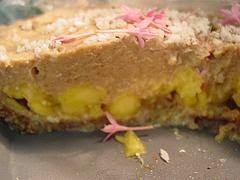 RAW FOOD PIE I MADE
RAW FOOD PIE I MADE
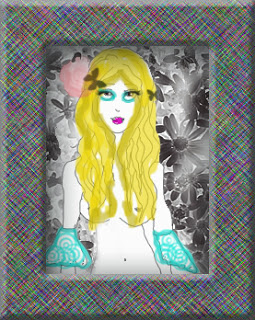 DRAWING
DRAWING
Raw foodism, is not me, I am me.I have done alot in the name of raw foods, alot. But I do come first. Raw foodism is second to me. Me, this thing, this thing..this thing that won’t go away that every year gets better in minute increments. Does it get better? Of course it does. I can now say I live in reality. When I am nervous, I look outward, not inward, that is a big change. I also feel self supportive and when I am not, I see this too. I know when I am making a mistake these days. I know it. It’s not this gnawing at the back of an unknown but out here in front of me. I know what to do.I know the difference between feelings and what I know as facts. I know when there is a contradiction there is an error in my thinking and to rethink things. Ayn Rand calls it checking your premises. What is me? What is me in what I do, and well, I know I am more than a raw foodist. I am a writer. I write everyday. What is love but an abstraction, can I do without it? No, I can’t because I need to find reflections of myself. The ones I want to see. Not the ones I do not want to be or see.
I was thinking you know how I have this ideal man in me, I try to find, well, what f, he is what everyone is looking for, what if my ideal woman and my ideal man are the same as every body else’s, but the details are different? This vision of strength, fortitude, ingenousness, willingness to learn what one does not, patience, health, beauty, strength, and self esteem. What if he is ideal man, and woman, and when we settle for less we cheat ourselves, or when we act like worms, we cheat of being that? A food list from 2004
7/30 2004organic grapefruit
red pepper from garden with tomato and soaked flax seed dressing made
with 1/2 avo
juiced cucumber from garden with apple and had carrot juice earlier
8/1/2004
Curry almond nori roll with lemon garlic tahini with tomato basil dressing
durian
avocado
guarapo
thai coco water
8/7/2004
two nori rolls with curry almond pate
marinated mushrooms
salad
8/8/2004
carrot/oj juice
2 sprout salads with tom/avos/onions/raisins
lemon garlic tahini dressing
berrie/avo/banana/vanilla/raw honey smoothie
8/9/2004
fasting on coconut water all day
8/10/2004
kim chee
ginger water smoothies
garden salad
hibiscus sun tea
8/11/2004
kim chee
mango smoothies
sprout salad
durian
mango banana coconut dried fig smoothies w/ a lil honey
8/12/2004
mango smoothies with dried fig and banana
8/19/2004
made daikon noodles with peanut sauce
coconut
I could really use some. A few weeks
back I had some and it was raining like a tropical storm outside.. about
an hour after I drank a lot, I jumped in my pool and for like two hours
I was in a perfect , most beautiful fantasy world. Cacao does that to
me but not everytime I drink it…only when I don’t expect it. I
ordered it from Nature’s First Law already peeled and I ground it up
with any kind of white nut, water, Maca Root powder maybe ( I bought a
huge bag a while ago but I am not impressed.. I personally just don’t
get it) and some Agave Nectar, if I have any, maybe, with some dash
of Cayenne. yummy.. I will order some soon.
When I went on my raw food retreat we all took a hike, and at this big
huge waterfall everyone got naked except me, because I am shy.
Everybody screaming, ” best day ever!!!” I was so in awe!
I know a miracle will happen to me soon. Something I do not expect
that I will be so grateful for.
I brought Hygeia
Halfmoon’s “PRIMAL MOTHERING IN A MODERN WORLD”.
( I want to be a mother! I want to be a mother!)
WHAT A GREAT AND POWERFUL BOOK FOR WOMEN TO READ. I read it looking
out into the ocean and mangroves. I felt like the only person in the
park besides a scuba diver in the water.
I was not hungry. I just had a guarapo and some coconut/ mango/water
shake. When I got home I ate some of my cookies that were ready…oh
my god, so delicious.
It was so delicious that my dog’s puppies who are still breastfeeding
were trying to lick it up , chewed up pieces, into their mouths.
I will eat Guacamole later if I eat anything. I am so rarely TRULY
hungry on raw food.
————————- I rode my bike to get Guarapo. I also drank Trinity “mineral
supplement”. I think it’s a full moon. I ate Raw burritos tonight with
Romaine lettuce. I put in Sprouted Sunflower pate, raw Salsa,
Sunflower Sprouts and greenpea Hummous. had a sprout and tomato salad
later. Snacked on an Orange.
The Suvine Supreme
Chocolate Cake
Filling – Carob, cacao, mesquite, coconut meat of 9 coconuts, coconut
oil, agave, 2 T cinnamon, salt, pecans, 1 T nutmeg
Crust – Pecans, cinnamon, nutmeg, agave, coconut oil, salt
oil, agave, 2 T cinnamon, salt, pecans, 1 T nutmeg
Crust – Pecans, cinnamon, nutmeg, agave, coconut oil, salt
Carrots and Currants recipe from Living Cuisine:
3 c shredded carrots
1/2 c currants ( I used raisins)
1/2 c chopped walnuts
1/2 c parsley ( I didn’t have any)
1 ts dill ( I had thyme)
2 T flax oil
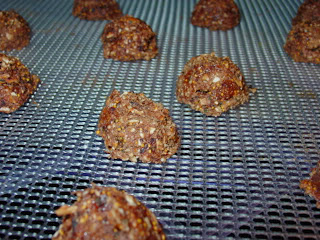
It had 1 c soaked almonds to 2 c soaked figs..and a bunch of mint.
Bagels – 1 cup flax powder, 1 cup nut flour, 1 t coconut oil, 1 T
olive oil, 1 t salt, 1/4 to 1/2 cup water
Croissants – Same recipe as bagels but more water, thinner, and coat
with coconut oil to add flaky texture. Put dough on teflex, cover with
other teflex, then us rolling pin to flatten
Challah – 2 cups nut flour, 1/4 to 1/2 cup ground flax, 3 grains of
buckwheat, 1.5 cups soaked raisons, .5 cups raisin soak water, chopped
fruit if wanted, can even add chocolate (cacao

